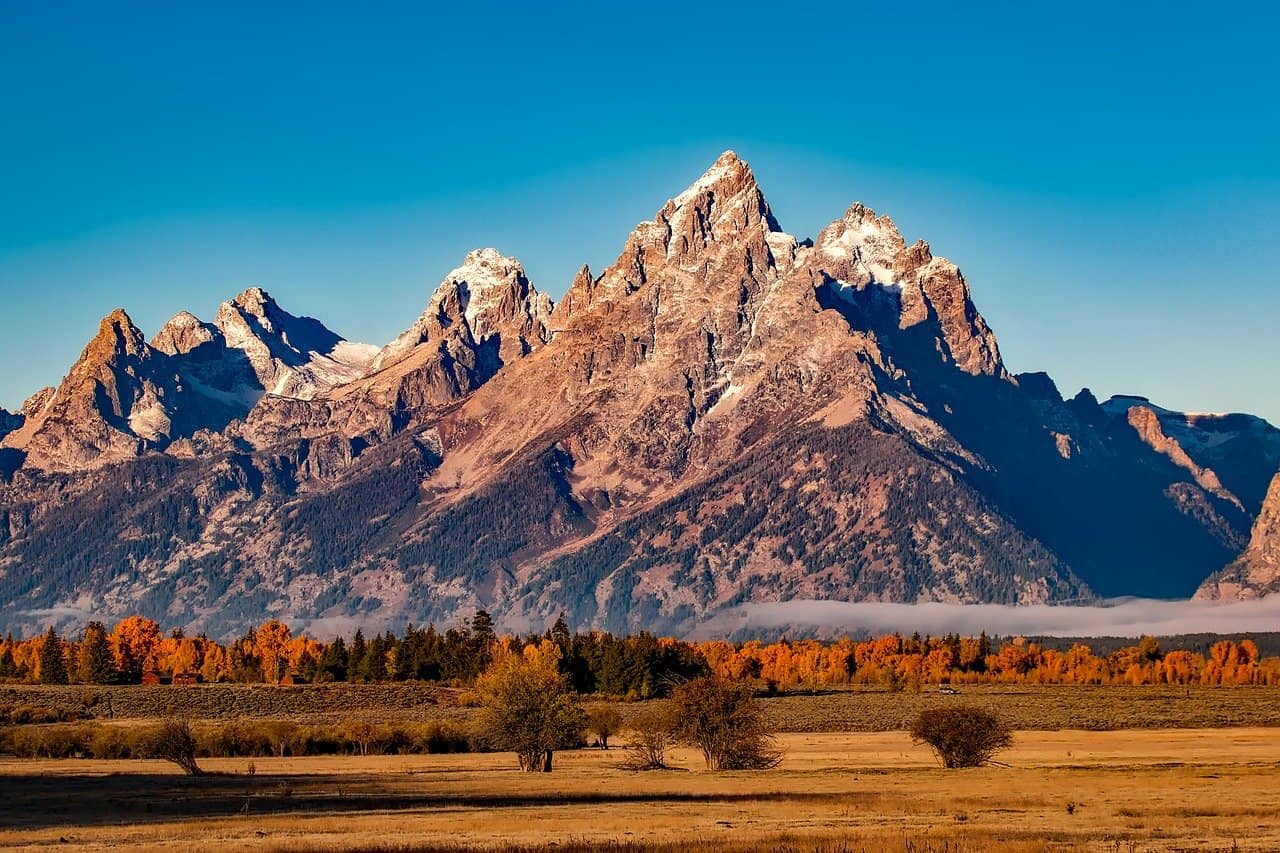
As the summer temperatures and crowds cool at the National Parks, fall is an excellent time to enjoy the outdoors. Starting in the northern most sites, the leaves start to turn brilliant colors in September and continue though November. From fiery reds to pumpkin oranges to sunburst yellows , visitors can see maples, aspens and oaks in color. From cozy lodges to scenic camping sites, visitors can make it a long weekend, perfect for sweaters and s’mores. Here is the Best National Parks for Fall Color.
Best National Parks for Fall Color
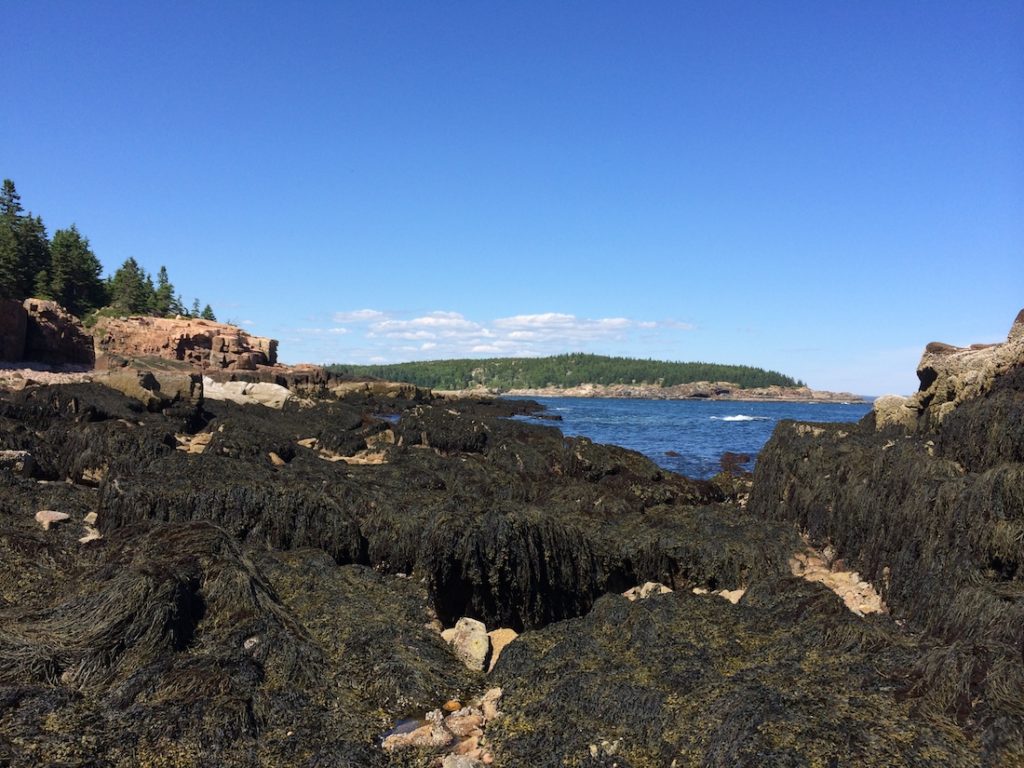
Acadia National Park in Maine
Located along the stunning Atlantic coast near Bar Harbor, Acadia National Park might be one of the best national parks for fall color. After stopping by the Hulls Cove Visitors Center, board the Island Explorer to see Acadia National Park.
Top spots along the route are Sand Beach, Thunder Hole and Jordan Pond. The carriage roads in Acadia offer excellent leaf peeping strolls along with a hike up Cadillac Mountain. Jordan Pond House remains open until the end of October for popovers and tea. Acadia is one of the Best National Parks for Fall Color.
For visitors who want to explore by car, head over to the Schoodic Peninsula for a mini version of the Mount Desert Isle. It offers hiking trails along the Atlantic Ocean along to the highpoints of the park with fewer crowds.
Acadia National Park is just south of Bar Harbor, Maine, and 275 miles northeast of Boston, Massachusetts. It is open year round but there are seasonal road closures November through March. Admission is $25 per car for a 7-day pass.
Planning Guide to Acadia National Park
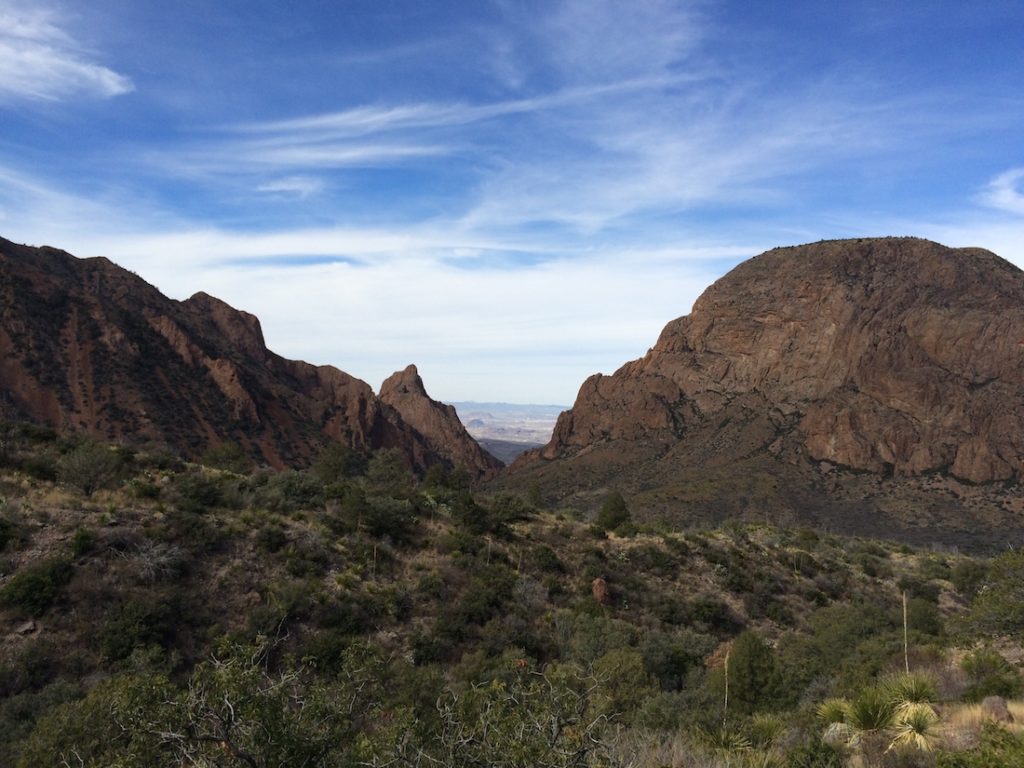
Big Bend National Park in West Texas
Out in West Texas the skies are as large as the horizon and the night sky glitters brighter than anywhere else in the U.S. Located at the end of the road in the bend of Texas, Big Bend is where the desert meets the mountains and then meets the river.
For fall color, there are two mains spots to explore. The Chisos Mountains is home to the highest peaks in Big Bend National Park. With its higher elevation, it is cooler during the day and night, thanks to the thin desert air. This area features trees like Cottonwoods and Madrones.
Located in a pocket of Cottonwoods that turn a brillant yellow, the Rio Grande Village offers a large campground area along with a picnic area. The U.S. – Mexico Border Crossing is in the area. The Daniels Ranch, a historic adobe building is located nearby.
Big Bend National Park is located in far West Texas, about 450 miles west of San Antonio, Texas. It is open year round but the park offers few services during the heat of the summer. A 7-day vehicle pass is $30.
TopThings to do in Big Bend National Park
Franklin D. Roosevelt National Historic Site in Hyde Park, New York
Perched along the Hudson River about two hours by train from New York City, the Franklin D. Roosevelt National Historic Site is the childhood home of the former present. During his lifetime, FDR considered himself a tree farmer as well as politician.
During his tenure, he worked with the New York State College of Foresty to develop techniques to keep the forests substainable. The grounds now include mature specimens, like red oaks, sugar and silver maples along with beech, hickory and chestnut.
In addition to the estate that is free to enter, visitors can tour the FDR Home for $10 per person (16+), his gravesite and presidential library (additional $10 to enter) are located on the property.
Frankline D. Roosevelt National Historic Site is located at 114 Estates Lane, Hyde Park, NY. Opens daily from 7 a.m. until 8 p.m. for April 1- August 31. and earlier for the rest of the year.

Glacier National Park in Montana
Find the fall color favorite Quaking Aspen in Glacier. The fall color season starts early and leaves change colors starting in mid-September. In addition to Aspen, find Western Larch trees that turn a golden color. Wildlife is more active during the fall and it’s a popular mating season. Glacier is one of the Best National Parks for Fall Color in the Western U.S.
Glacier National Park is in northern Montana. It is open year round but Going-to-the-Sun Road closes in the fall for snow. Admission is $35 per car for a 7-day pass.
Planning Guide to Glacier National Park
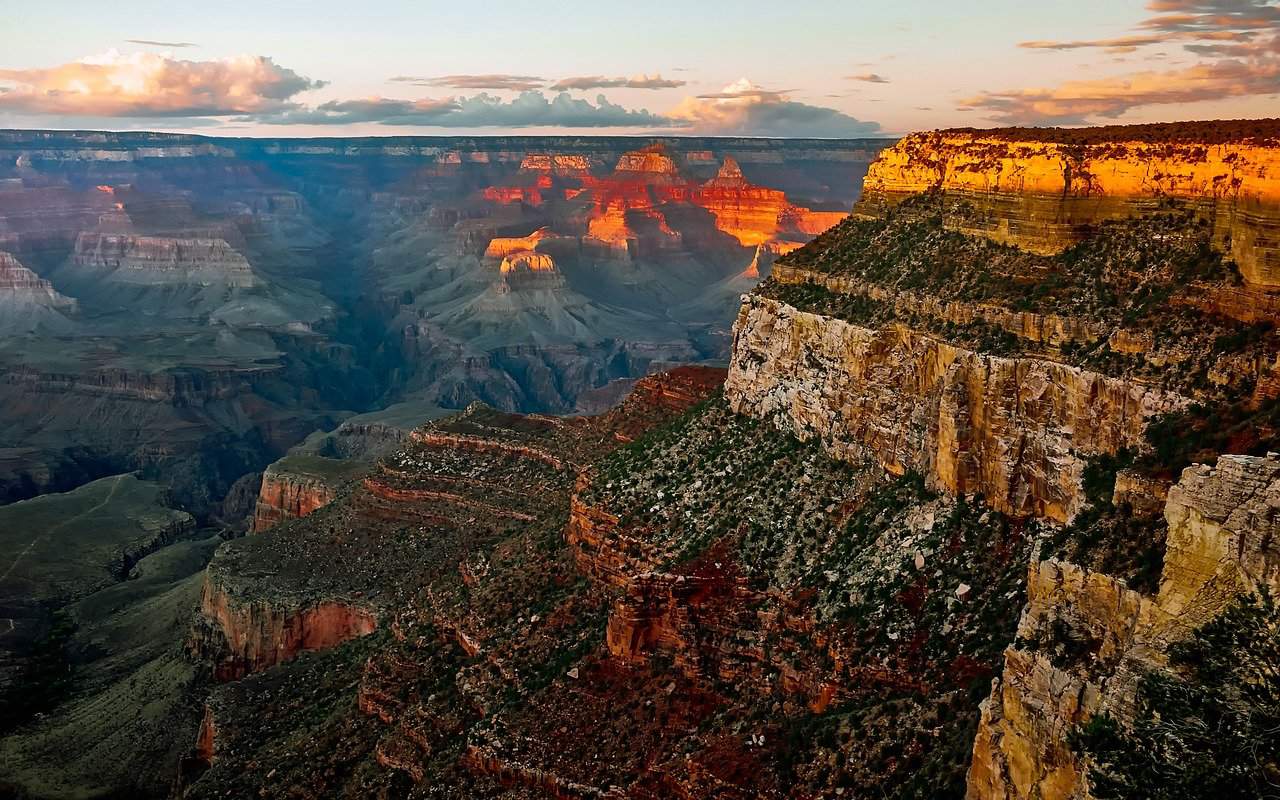
Grand Canyon National Park in Arizona
The South Rim offers Fremont Cottonwoods and Gambel Oaks for fall color. The North Rim features aspen. Fall brings milder temperatures inside of the canyon so hiking is popular.
The Grand Canyon is in northern Arizona. The South Rim of the Grand Canyon is open 365-days a year, 24-hours a day. A 7-day private vehicle pass is $35. North Rim is closed from December 1 to May 15th.
Planning Guide to Grand Canyon
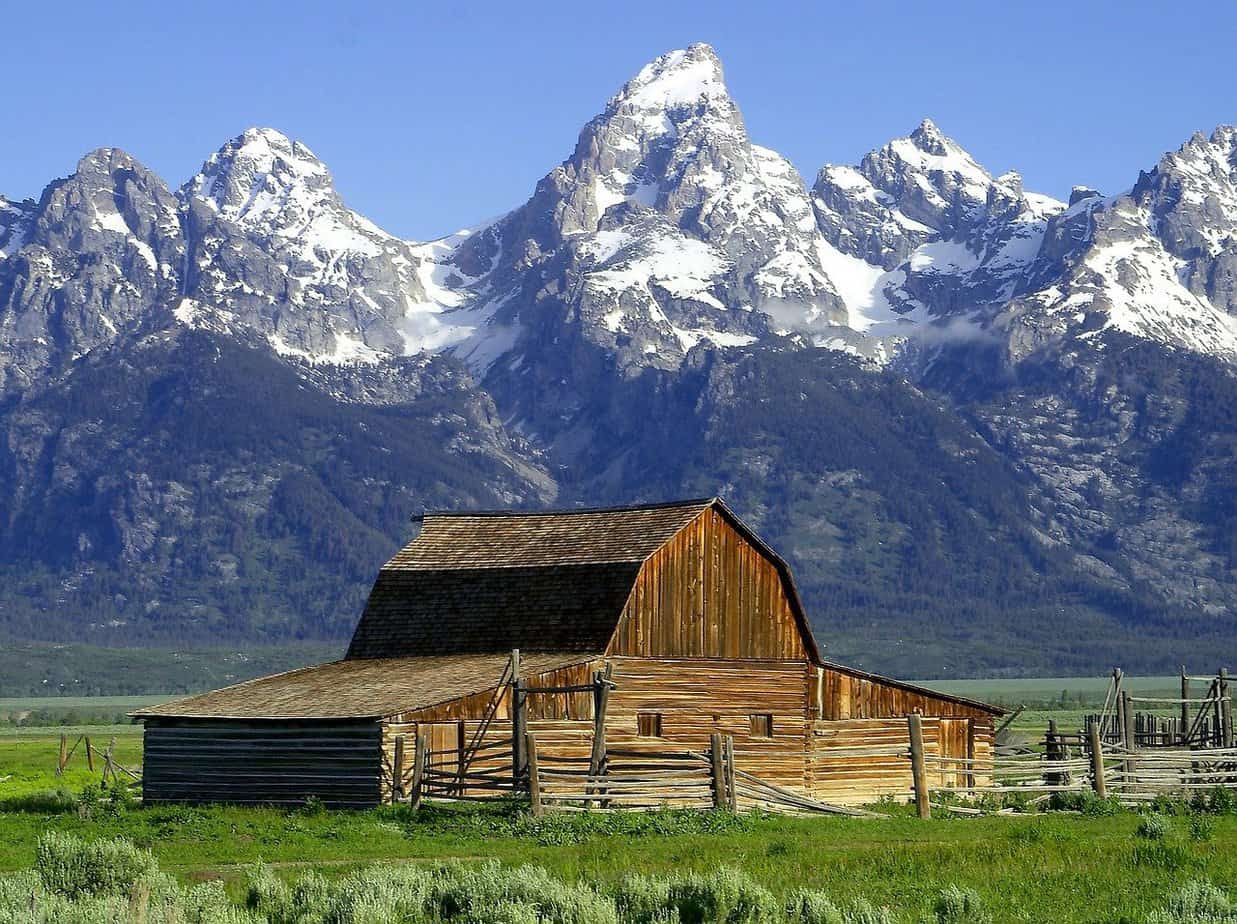
Grand Teton National Park in Wyoming
With a diversified forest, the leaves start to pop from early September and continue to October. With colors of yellow and orange, see Quaking Aspen, narrowleaf cottonwood, black hawthorn and willow. The best areas to see fall color are near water, like the numerous lakes.
Grand Teton National Park is open 24-hours a day, 365-days a year. Though there may be seasonal road closures from September until May due to snow. Most services are open in the summer and fall color season from early June to October. Admission is $35 for a 7-day pass for a private vehicle.
Planning Guide to Grand Teton

Great Smoky Mountains National Park in Tennessee and North Carolina
Plan an autumn trip to the Smokies for one of the top places to see fall color. With about 100 native tree species, find several types of maples along with American beech, scarlet oak, sweet gum and hickories.
The fall color season runs from September to November, depending on elevation. Take a scenic drive for the easiest way to see fall color though expect traffic delays. Roaring Fork Motor Nature Trail, Blue Ridge Parkway (outside of the park), Foothills Parkway and Clingmans Dome offers the best fall color.
Great Smoky Mountains National Park is located between Tennessee and North Carolina. It is open 365-days a year, 24-hours a day and free to enter.
Planning Guide to Great Smoky Mountains

Guadalupe Mountains National Park in Texas
The Highpoint of Texas offers more than mountain climbing. In the fall, the trees are the show. Since the park is the southern tip of the Rocky Mountains, find maples and the Texas Madrones.
Guadalupe Mountains National Park is located in West Texas. Open 24-hours a day and 365 days year. Admission is $7 a person for 16+ for a seven-day pass.
National Parks of Texas
Isle Royale National Park in Michigan
Off the Upper Peninsula of Michigan in Lake Superior, fall comes early to Isle Royale National Park. With its remote location, visitors enjoy a park to themselves for most visits. Find Paper Birch, Aspen, Mountain Ash that contrast with the fir trees.
Isle Royale National Park is located in Michigan’s Lake Superior. Open mid April to October 31, a ferry ride is required to visit. Admission is $7 a person per day (16+).
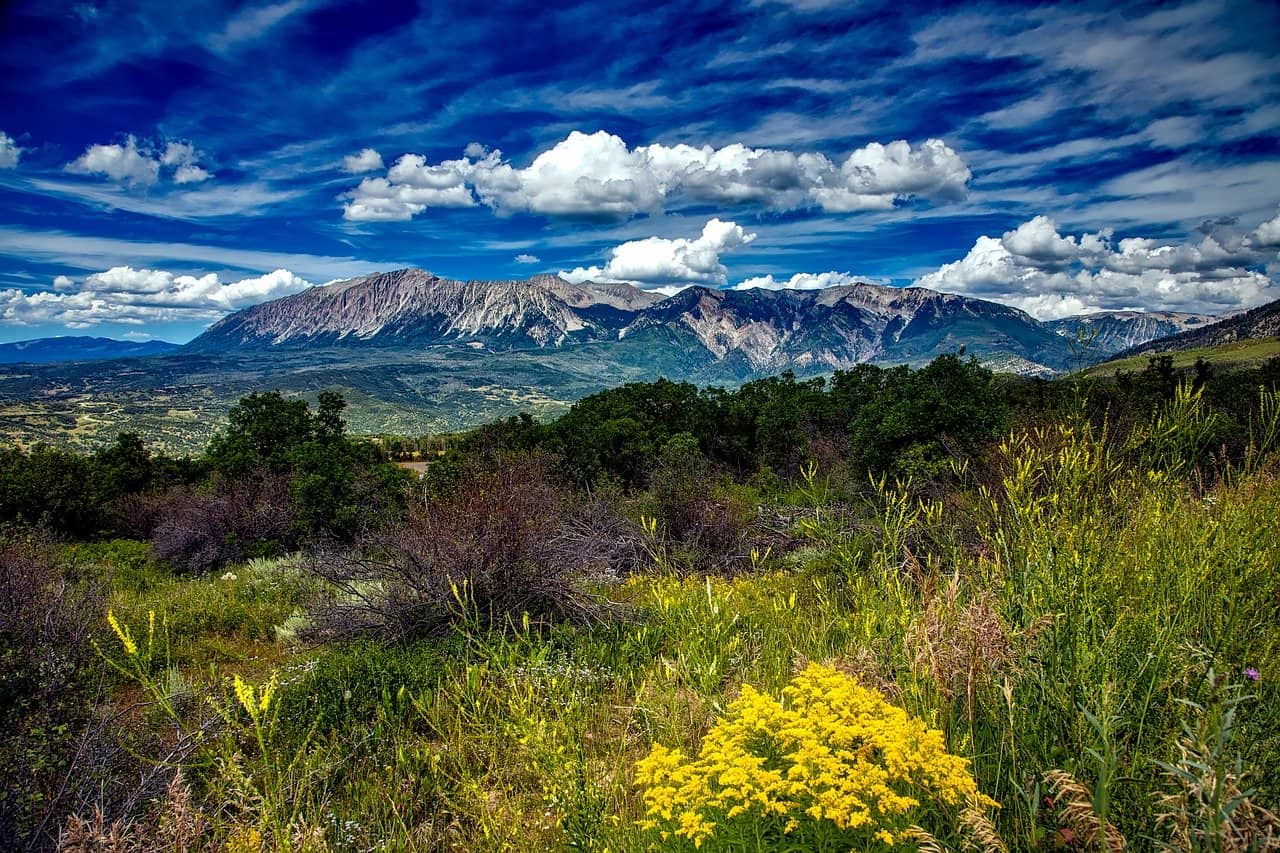
Rocky Mountain National Park in Colorado
As the season officially changes from summer to fall so do the trees. The Quaking Aspen start to mellow into its signature gold color in middle to late September until mid October, depending on weather and elevation. Rocky Mountain Naitonal Park is one of the Best National Parks for Fall Color.
The easier way to experience fall color season is a scenic drive, like Trail Ridge Road. Though hiking is another way to enjoy the cool weather and brilliant fall color. Try Sprague Lake, Bear Lake or Albert Falls for the best color.
Estes Park is about 5 miles from the Fall River Entrance on the east side of Rocky Mountain National Park. Granby is about 16 miles from the Grand Lake Entrance on the west side of the park.
Rocky Mountain National Park is open 24-hours a day, 365-days a year. A one-day admission is $25 per car. The Rocky Mountain National Park timed permits are required until October 22, 2023. For more information, visit the NPS site.
Planning Guide to Rocky Mountain
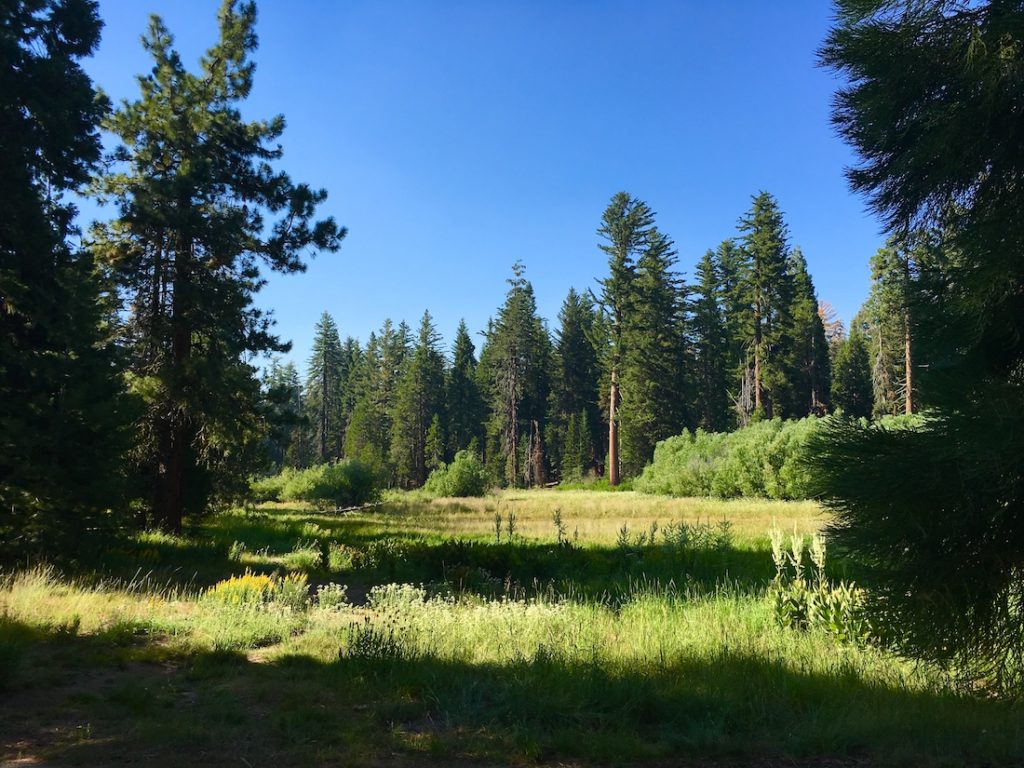
Sequoia and Kings Canyon National Parks in California
Two separate parks are joined on one side. Home to the mighty evergreen sequoia trees though find dogwood shrubs at the base that turn red during the fall.
Located in the southeast California. Open 365-days a year and 24-hours a day. A 7-day pass for $35 per vehicle, good for both Sequoia and Kings Canyon.
Sequoia and Kings Canyon Planning Guide
Shenandoah National Park in Virginia
Close the Washington, DC, Shenandoah is popular for scenic drives in the fall since Skyline Road runs north to south in the park. Find a wide assortment of trees, like Red Oak, Maple, Sassafras and Yellow Poplar.
Shenandoah National Park is located in Northwestern Virginia. Open 365-days a year and 24-hours a day. A 7-day pass for $30 per vehicle.
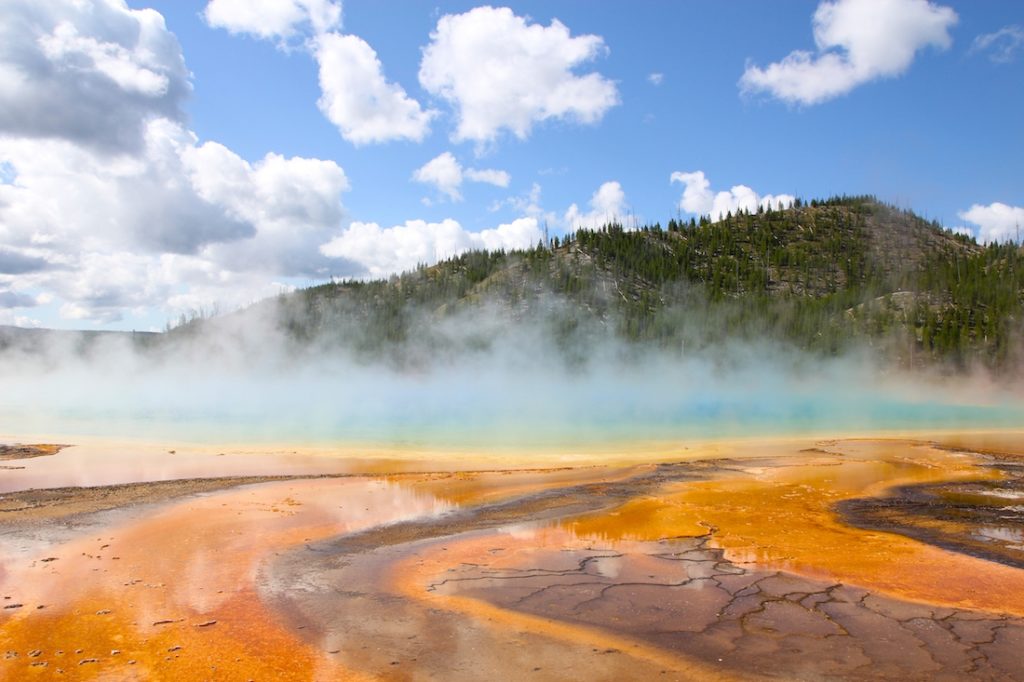
Yellowstone National Park in Wyoming
Fall comes early in Yellowstone. The summer travelers are barely gone before the trees start to change. Find Quaking Aspen, Narrowleaf Cottonwood, Willon and Hawthorne trees.
Though a beautiful time to visit, some of the lodging and services close in early September so planning is important. Can be combined with Grand Teton National Park or even Glacier National Park to the north for an extended trip.
Yellowstone National Park is located in Wyoming. Open 365-days a year and 24-hours a day. A 7-day pass for $30 per vehicle.
Planning Guide for Yellowstone National Park
Yosemite National Park in California
Head to the valleys for the best color, with Quaking Aspen, dogwood, big-leaf maple and black oak. Early color can be found along Tioga Road in the Tuolumne Meadows area.
Yosemite National Park is located in eastern portion of Central California. Open 365-days a year and 24-hours a day. A 7-day pass is for $35 per vehicle.
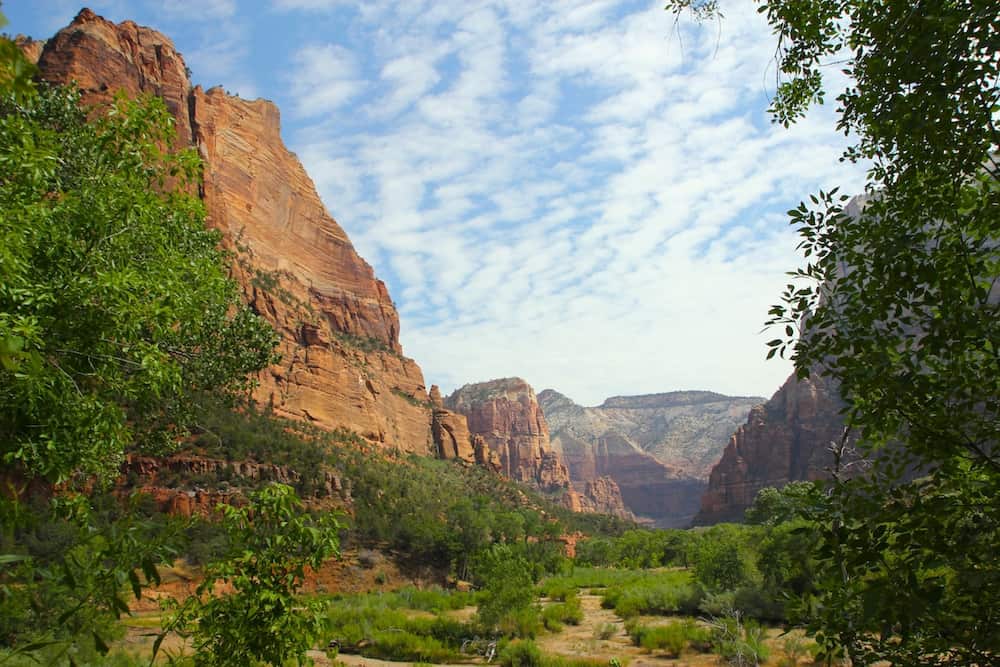
Zion National Park in Utah
Starting at the top of the ridges, fall colors dip into the valley turning the Freemont Cottonwoods a sunny yellow. It’s a nice contrast to the red sandstone and the evergreen pinyon trees and junipers. The weather is mild and hiking is a top activity.
Zion National Park is located in Southern Utah. Open 365-days a year and 24-hours a day. A 7-day pass for $35 per vehicle.
Planning Guide to Zion National Park
Tips for Fall Color Trips
- Save time, buy your park pass online.
- Pack water and food for your trip.
- Wear appropriate footwear for the outdoors.
- Give animals their space, 25 yards in most cases.
- Dress in layers.
- Check with the park for the latest color updates.
- Make reservations in advance for camping and lodging.
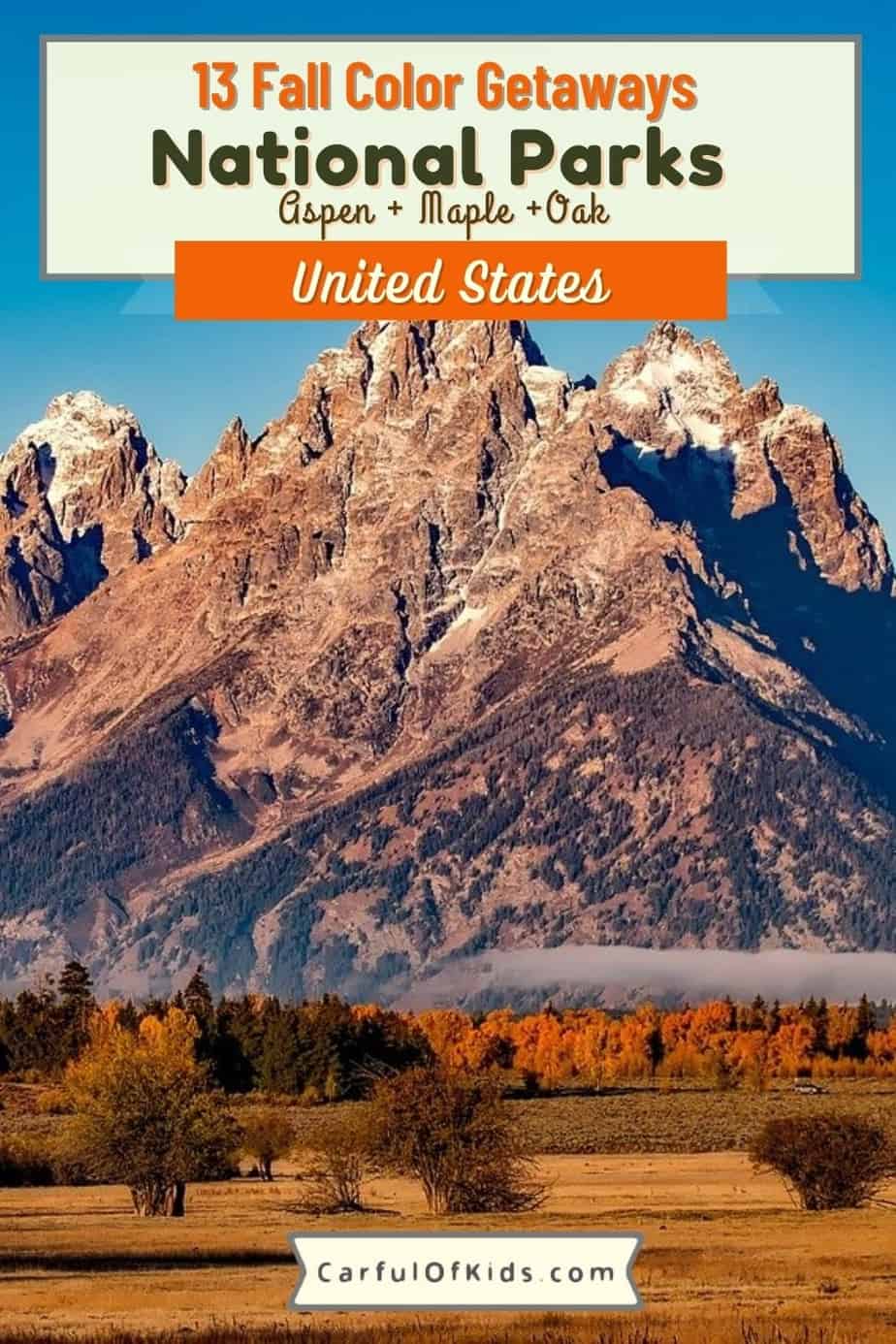

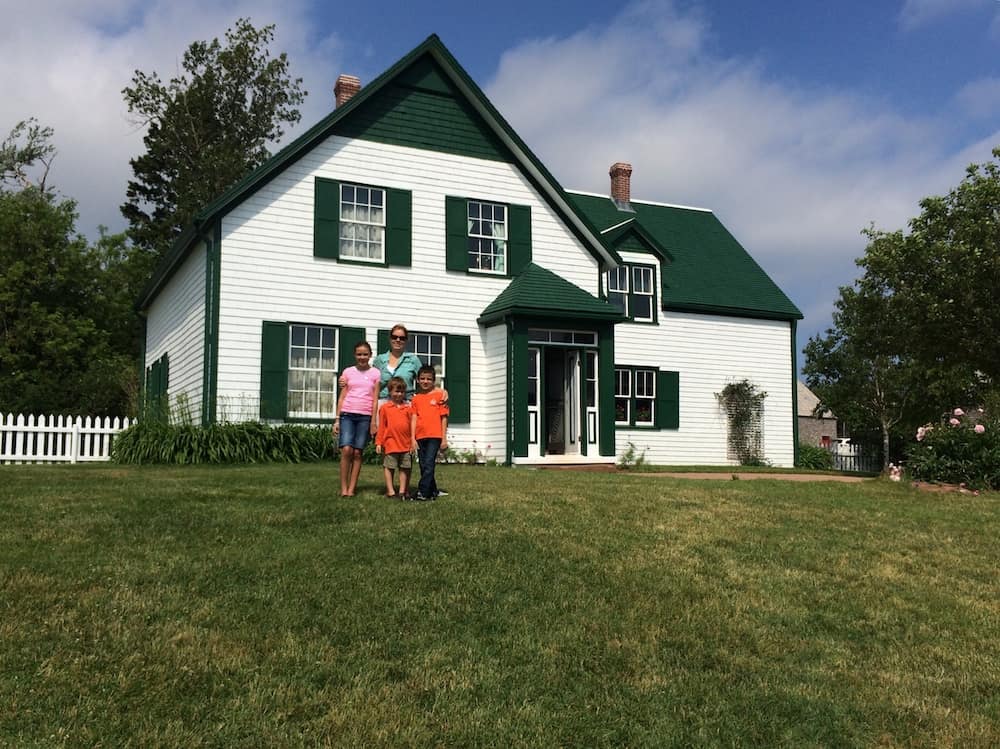
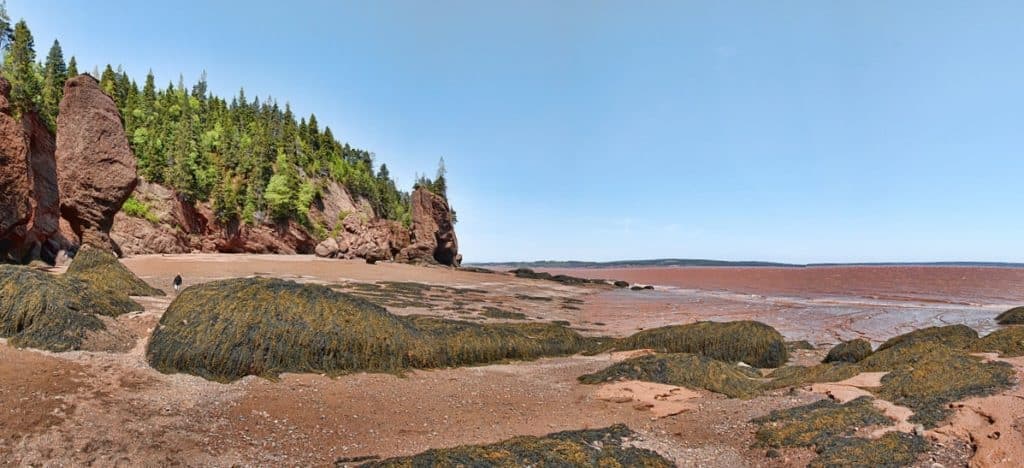
Comments are closed.